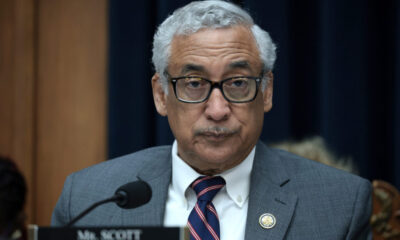Politics
Ice Cream removed from School Menus Sparking Industry Outcry

The owner of Davison’s Ice Cream has publicly criticized the decision by the government to remove ice cream from primary school menus. This change is part of a broader overhaul of school meals, which will take effect in the 2025/26 academic year. The Department of Education, Sport and Culture (DESC) announced that the new menus aim to significantly increase the amount of fresh, locally sourced produce while reducing the prevalence of ultra-processed foods (UPF).
Under the new guidelines, the share of UPF in school meals will decline from 51.5% in the previous academic year to just 5.3% this year. In contrast, the use of locally sourced ingredients has surged from 6.2% to nearly 25%. These metrics were derived using the internationally recognized NOVA scale, which categorizes foods based on their processing levels.
Thousands of students across the island’s 31 primary schools will experience immediate changes to their lunches. New menu options include dishes such as sweet potato and coconut curry, roast Manx pork, and freshly prepared pasta bakes, with expanded salad selections. Traditional desserts, including ice cream and sponge puddings, will largely be replaced by fruit and whole Manx milk.
Greig Davison, owner of Davison’s Ice Cream, expressed his disappointment with the decision in a post on Facebook. He questioned the classification of ice cream as an ultra-processed food, suggesting that the criteria unfairly penalize products that undergo necessary processes, such as pasteurization and freezing.
“So I wonder how many MHKs will now stop eating our ice cream after they voted to remove it from the new school menus (where it’s been an option for 15+ years) and have now deemed it as an ultra-high processed food,” he stated. Davison highlighted that his ice cream contains over 70% milk and cream and is relatively low in sugar compared to other sweets.
He noted that schools use approximately 6,000 litres of ice cream annually, asserting that removing such options could lead to hungry children. “Good luck teachers as I know what my two are like when they’re hangry,” he added, reflecting on the potential impact on students.
In defense of the changes, Daphne Caine MHK, the Education Minister, emphasized that the new menu is designed to promote long-term health for students. “We are pleased to offer this menu, which gives children the healthy start they deserve,” she stated. Caine explained that the reduction in ultra-processed foods supports healthier eating habits and contributes to better overall health outcomes for children.
The new meal options will continue to be prepared on the island, thereby supporting local jobs and reducing the carbon footprint associated with food transportation. Schools will also monitor food waste to ensure ongoing improvements in menu offerings.
The price for school meals will remain at £2.55, with free meals available for eligible families. Approximately 3,100 meals are served each weekday across the island’s primary schools, ensuring that students have access to nutritious options.
As the new menus roll out, the debate around food processing and child nutrition continues to unfold, highlighting the complexities of balancing health guidelines with local industry interests.
-

 World4 days ago
World4 days agoCoronation Street’s Shocking Murder Twist Reveals Family Secrets
-

 Entertainment4 months ago
Entertainment4 months agoKate Garraway Sells £2 Million Home Amid Financial Struggles
-

 Entertainment3 months ago
Entertainment3 months agoAnn Ming Reflects on ITV’s ‘I Fought the Law’ Drama
-

 Health3 months ago
Health3 months agoKatie Price Faces New Health Concerns After Cancer Symptoms Resurface
-

 Entertainment4 weeks ago
Entertainment4 weeks agoCoronation Street Fans React as Todd Faces Heartbreaking Choice
-

 World4 weeks ago
World4 weeks agoBailey Announces Heartbreaking Split from Rebecca After Reunion
-

 Entertainment7 days ago
Entertainment7 days agoTwo Stars Evicted from I’m A Celebrity Just Days Before Finale
-

 World7 days ago
World7 days agoKevin Sinfield Exceeds Fundraising Goal Ahead of Final Marathons
-

 Entertainment3 months ago
Entertainment3 months agoCoronation Street’s Carl Webster Faces Trouble with New Affairs
-

 Entertainment3 months ago
Entertainment3 months agoWhere is Tinder Swindler Simon Leviev? Latest Updates Revealed
-

 Entertainment4 months ago
Entertainment4 months agoMarkiplier Addresses AI Controversy During Livestream Response
-

 Science2 months ago
Science2 months agoBrian Cox Addresses Claims of Alien Probe in 3I/ATLAS Discovery













